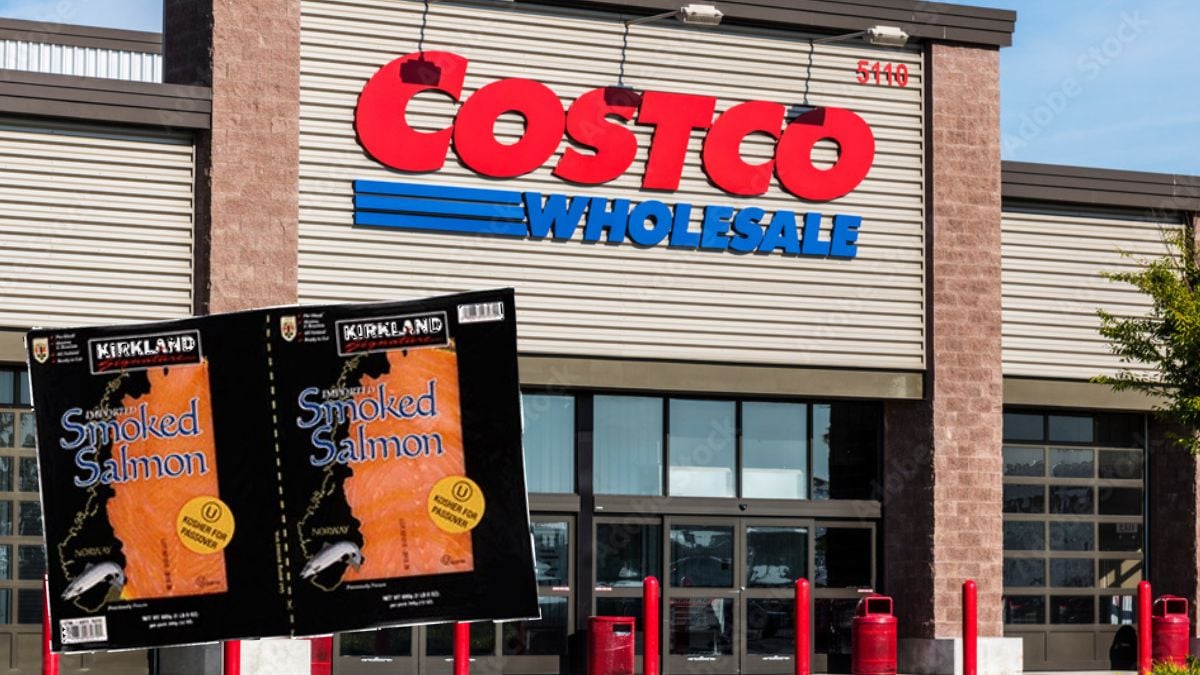
Several boxes of smoked salmon sold at Costco are being recalled by order of Acme Smoked Fish Corporation. If you purchased this product at the store, here’s why it’s being recalled and what you should do if you still have it.
Which salmon is being recalled from Costco?
According to Acme Smoked Fish Corporation, based in Brooklyn, 111 boxes of Kirkland Signature brand smoked salmon, in double 12-ounce packages, are being recalled.
The fish is vacuum-sealed inside a plastic package with a black border. On the front, there is a blue name that says “Smoked Salmon”, accompanied by an illustration of a salmon fish.
The product’s expiration date is November 13, 2024. On the back of the package, the UPC code can be found: 0 96619 25697 6, while the batch code is displayed on the front: 8512801270.
Why is Costco’s salmon being recalled?
The U.S. Food and Drug Administration (FDA) indicated that this product may be contaminated with listeria. The FDA has classified this recall as a Class 1, the highest-risk level, because it could pose a life-threatening danger.
ALSO READ When does Your Friendly Neighborhood Spider-Man release on Disney+? We tell you
Where was the listeria-contaminated salmon sold?
The product was shipped to Costco’s Southeastern Distribution Center in West Palm Beach, Florida, as well as to Costco Warehouse stores throughout the state of Florida.
What should I do if I bought the contaminated salmon from Costco?
So far, the FDA has not reported any illnesses related to this product. However, the agency noted that some customers may have frozen the fish to consume later, so they are urging anyone who still has the product to dispose of it immediately.
What is listeria?
Listeria monocytogenes is a bacteria that can cause a potentially serious or fatal infection, particularly dangerous for young children, elderly adults, pregnant women, and people with weakened immune systems.
Symptoms of listeria
Listeria infection can present with a range of symptoms that typically appear within a month, such as:
- Fever
- Muscle aches
- Fatigue
- Headache
- Stiff neck
- Loss of balance
- Seizures
- Confusion
In pregnant women, this infection can lead to miscarriage or even fetal death.
How is listeria transmitted?
The Listeria bacteria are widely present in the environment, including in water and soil. Infected animals can also carry and spread the bacteria.
Main ways listeria spreads include:
- Consumption of unpasteurized milk or contaminated vegetables.
- Transmission from mother to child during pregnancy or directly to the fetus during childbirth.
- Sexual contact.
- Inhalation of the microorganism.
What foods cause listeria?
Various foods and beverages can be contaminated with this bacteria. Here are some to watch out for:
- Dairy products made from unpasteurized milk
- Processed meats and ready-to-eat deli meats (sausages, hams, pâtés)
- Smoked fish, such as salmon.
How to prevent listeria
Due to the widespread presence of this organism in the environment, the most effective protection is to implement basic hygiene practices, such as consuming only pasteurized dairy products, ensuring meats are thoroughly cooked, and properly washing your hands before preparing food.
It is also advised that pregnant women and people with weakened immune systems avoid consuming these foods, as well as soft cheeses and uncooked deli meats.









